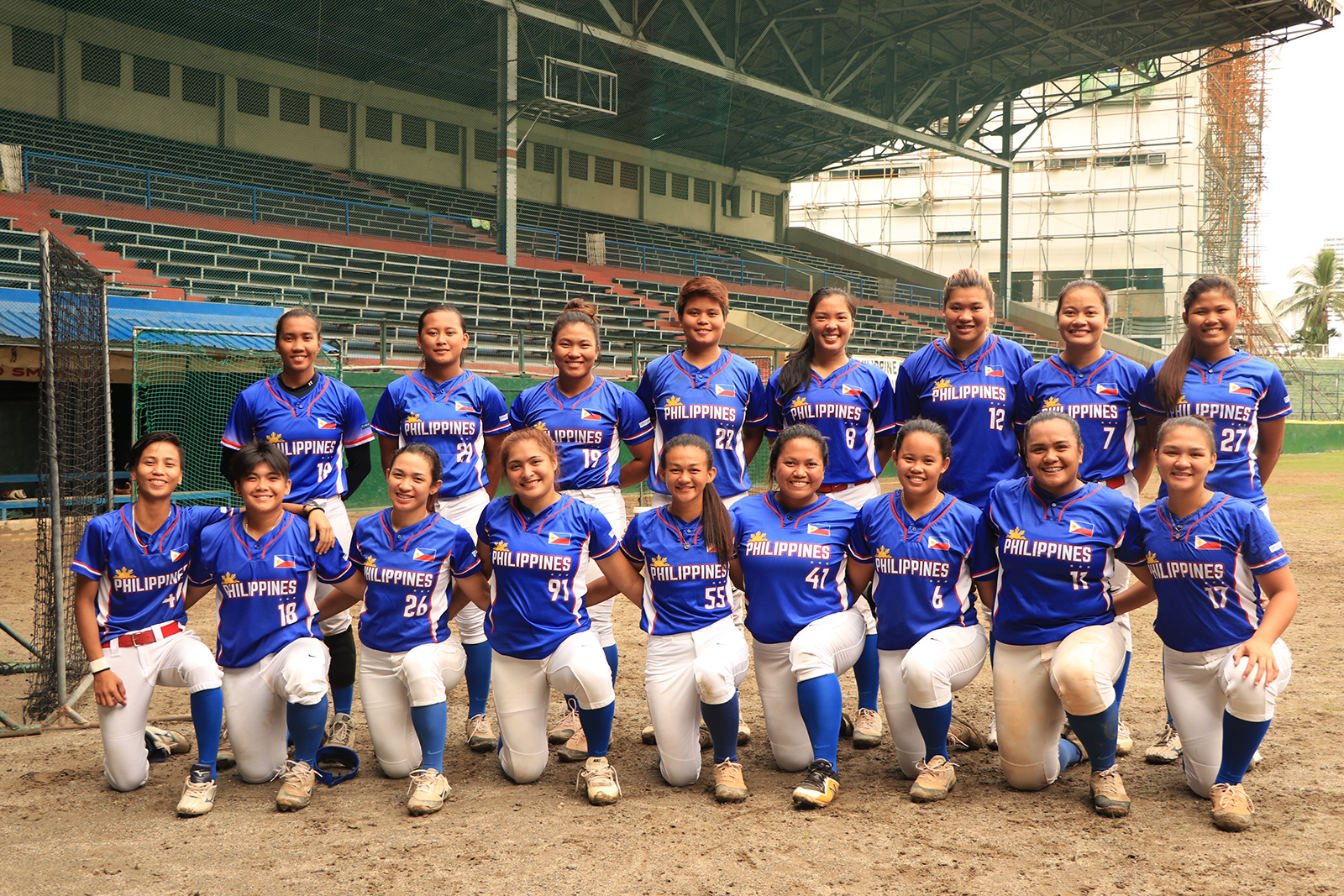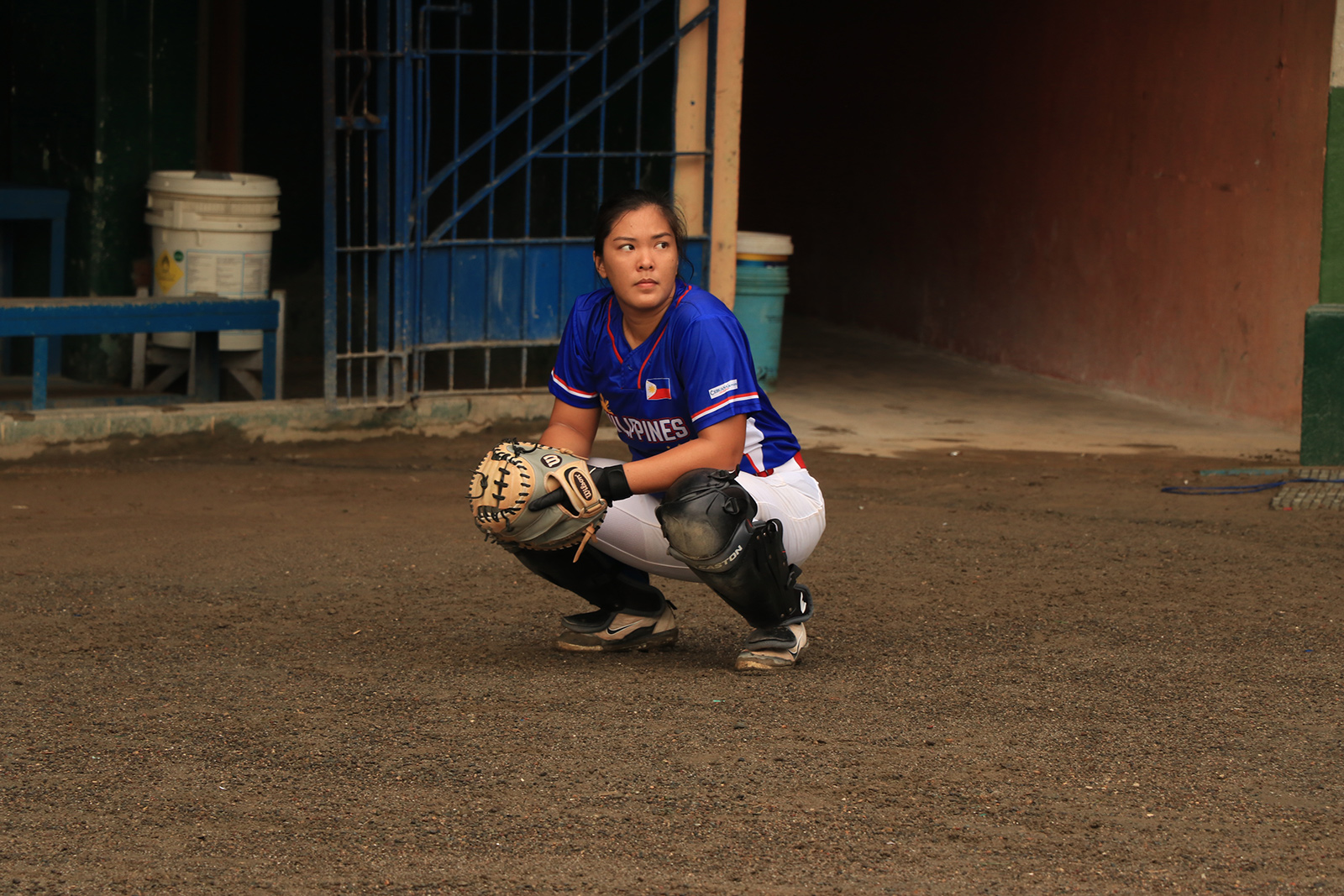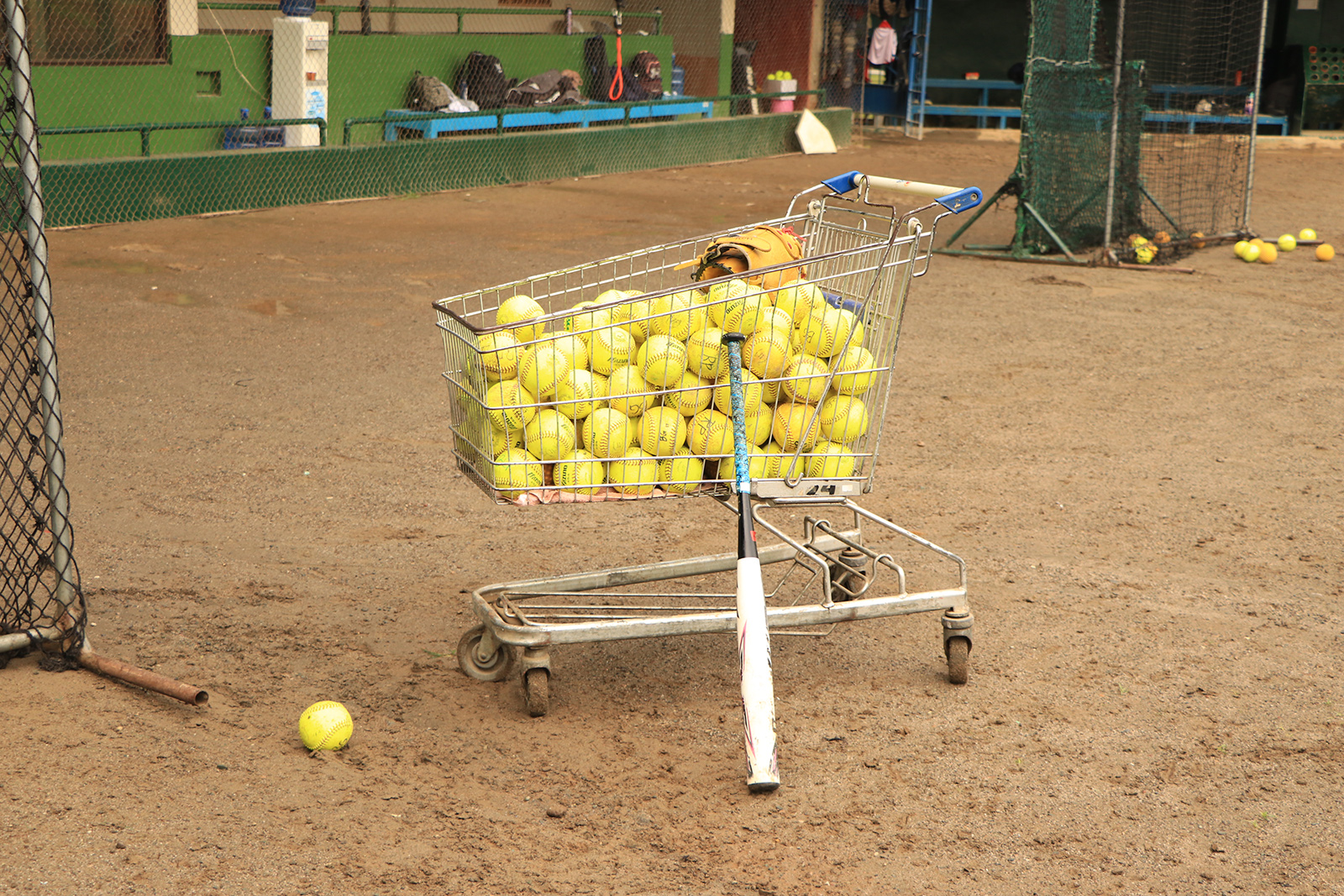When Filipinos think about the team success in the Southeast Asian Games, the men’s basketball team always comes to mind.
But our national team does not have a perfect gold medal record in SEA Games basketball, having finished second in the 1989 edition of the tournament.
In fact, the most dominant Philippine team in the SEA Games are the Blu Girls, our national women’s softball team.
They have won the gold medal in each of the nine SEA Games where there has been a women’s softball tournament.
Having dominated the region, the team has even made impressive runs in world-class softball tournaments. The Blu Girls have victories against the top world teams like Canada, Australia, Mexico, China and Chinese-Taipei under their belt.
Ranked No. 13 in the world, the Blu Girls qualified for the 2018 Women’s World Softball Championship in Japan, where they scored victories over South Africa and the Netherlands. They also made it to the World Cup of Softball in 2017, where they had wins against Australia and Mexico.
Despite all the success, softball remains relatively unnoticed in the Philippines, where much of the focus of fans are on mainstream televised sports like basketball and volleyball.
“Siyempre sa akin, masakit na perennial winner ka, we always get the gold pero ang nakukuha mong support is not that enough,” Blu Girls coach Randy Dizer tells GMA News Online.

THE TEAM NARROWLY MISSED OUT on qualifying for the 2020 Olympics in Tokyo, Japan, finishing fourth at the Asia/Oceania qualifiers in China last September.
“It hurts that we didn’t qualify for the Olympics and it hurts because we really believed that we could. But I think it was a good tournament for us. I’m not embarrassed about the results because we showed up and we really played well,” team captain Cheska Altomonte says.
“We have won against the top teams in the world, we played against them and won. Maybe we didn’t win this Olympic qualifiers but maybe if we continue the program, there is going to be a future for this sport here in the country.”
The Blu Girls have little time to lick their wounds, because they have a mission ahead of them: defending their title in the Southeast Asian Games.
FULL COVERAGE: The 30th Southeast Asian Games on GMA News Online
Cheska puts on her shoes and gear, muddy from all the training, as she prepares for another rigorous sessions on a sunny Thursday morning at the Rizal Memorial Baseball Stadium, the historic venue that hosted many seminal events, including the Beatles concert in Manila in 1966.
With its decaying facade, faded walls, and crooked pathways, the Rizal diamond has seen better days, but Cheska doesn’t seem to mind as she joins the rest of her teammates. They go through their morning jog before moving on to sprinting, catch, and throwing.
The training seems to last for hours, but the Blu Girls do not show any signs of tiring. Cheska, who divides her time between work at a retail company and her national team duties, diligently wakes up at 4:30 a.m. to train at the stadium every day.
“It’s always an honor to represent the Philippines. It’s something else to be able to stand in the field, representing an entire country and I’m very proud to say that I get to do that,” she says.

Catcher Cheska Altomonte, the Blu Girls team captain, divides her days between her national team duties and full-time work.
THE EMERGENCE OF THE BLU GIRLS as a powerhouse in Asia started back in the 1970s, when they never placed outside the top 10 in the global rankings. The team even had a bronze-medal finish at the Women’s Softball World Championship in 1970.
They have managed to stay dominant in the SEA Games, as their record shows. How do they do that? Coach Dizer has a ready answer.
“We have more exposure than other Southeast Asian countries,” he says.
The success of sports programs in the Philippines usually depends on the presence of a patron. In basketball, for example, heavy-hitters from the business world bankroll teams in the college and professional ranks, ensuring they have enough resources to win.
The Blu Girls found that in Jean-Henri Lhuillier, the business mogul who took over the reins of the Amateur Softball Association of the Philippines in 2006. His hands-on approach, Coach Dizer says, means that the team is never at a disadvantage.
“Most important thing, he supports us financially because we have to understand that the Philippine Sports Commission alone or the government alone cannot subsidies the training of the whole team kasi the Philippines has a lot of sports,” the coach says.
But the financial support is only one part of the equation. The hardest part of coaching the team, Coach Dizer says, is finding the right players.
A former baseball star playing catcher for the national team and Far Eastern University, he travels the whole country scouting women playing softball. Most of the women who end up on the team come from public schools, with the dream of using their softball acumen to be able to study college in the capital.
For Blu Girls pitcher Ann Antolihao, a native of Cebu, being part of the national squad is a dream come true.
“Ang saya kasi dati pangarap ko lang ‘to, hindi ko ine-expect na mararating ko ‘to pero ngayon nandito na ako, posible pala siya,” she says.
The girls say they have no problems adjusting to the city, because being part of the team somehow makes them feel like home.

Many Filipino fans may be familiar with Major League Baseball in the United States, but may not be as familiar with softball. What is the difference between the two games?
Overall, there is actually not much of a difference, because of the fundamentals of the games are the same. In fact, Blu Girls coach Randy Dizer was a former national baseball player.
There are differences in equipment: baseball bats tend to be longer and heavier. Baseballs are white and a little smaller than softballs, which are yellow and softer (hence the name).
In softball, the ball is pitched from a flat pitching circle that is not more than 43 feet away from the plate. The ball also has to be thrown underhand, while in baseball, the pitch is always done overhand or sidearm.
Softball also has a different field of play, which is smaller than those used for baseball.
THE TEAM IS CONFIDENT about winning the SEA Games tournament yet again for their 10th gold.
“Being with the team for how many years already, I’m sure we’ll get that gold again. I’m that confident. We’ve been pacing them, we’ve paced them sa Asian championship, sa Olympic Qualifiers, they’re the same team so I know with the capabilities of our team, I know we’ll get it,” Coach Dizer says.
“They’re hungry kasi eh. They want to win kasi as far as we are concerned, especially now that we are hosting, siyempre you playing with your countryman, everybody’s watching here kaya napakalaking bagay,” he adds.
That doesn’t mean that they are taking it easy in preparation for the tournament.
“We don’t want to be the team that can’t defend that gold. Our mindset every day is to win that gold. There should be no easy game for us,” team captain Cheska says,
As part of their preparation, the Blu Girls trained with the men’s team and played against different collegiate teams. They also focused on strength training, agility, and situational defense and offense.
The different tournaments they have played in has helped a lot, giving the Blu Girls confidence after going toe-to-toe with different world-class softball teams.
Still, the SEA Games gold would just be another milestone for a team looking onward and upwards.
“Our program is actually a very good program and its actually gotten better over the years. We won gold every single time we played in the SEA Games and now we want to compete at the Asian level, the World level and we have a program to cater to that,” Cheska says.
But the team is aiming to capture not just more medals, but the hearts and minds of Filipino fans. With the country hosting the SEA Games, they may have the chance to do just that.
“I think right now our goal as a team is to be able to show to the country that this is a sport that we excel in,” Cheska says. “One of our main motivations when we play, we want to be able to play well enough to get the interest of everyone so that softball becomes maybe a little bit more popular.”